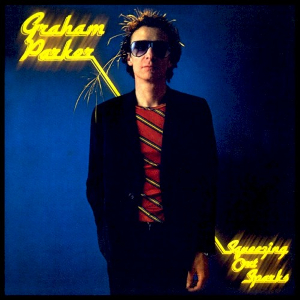Squeezing Out Sparks
| Squeezing Out Sparks | ||||
|---|---|---|---|---|
 |
||||
| Studio album by Graham Parker | ||||
| Released | March 1979 | |||
| Recorded | Lansdowne Studios, London | |||
| Genre | New wave | |||
| Length | 37:18 | |||
| Label | Arista, Mercury, Vertigo | |||
| Producer | Jack Nitzsche | |||
| Graham Parker chronology | ||||
|
||||
| Professional ratings | |
|---|---|
| Review scores | |
| Source | Rating |
| AllMusic | |
| Christgau's Record Guide | A |
| Encyclopedia of Popular Music | |
| The Rolling Stone Album Guide | |
| Smash Hits | 8/10 |
| Uncut | |
Squeezing Out Sparks is the fourth studio album by English musician Graham Parker and his band the Rumour. It was voted album of the year in the 1979 Village Voice Pazz & Jop Critics Poll and later ranked number 334 on Rolling Stone magazine's list of the 500 greatest albums of all time. Although the Rumour were not credited on the cover, their name was included on the album label.
Music videos were made for "Local Girls" and "Protection", and the tracks "Discovering Japan" and "Passion is No Ordinary Word" received radio airplay. In addition, "You Can't Be Too Strong", an uncharacteristic somber acoustic guitar ballad, met with controversy over its subject matter and narrative: a man's reflections on his girlfriend's abortion.
Whereas his previous albums were notable for their strong soul influences, with many prominent tracks and singles including a horn section, on this LP producer Jack Nitzsche favored a rawer sound. Coincidentally, popular punk band The Clash were undergoing a reverse process, trying to expand their musical arrangements. Therefore, the Rumor's rhythm and blues session players went on to record all the horn parts in the Clash's third and praised record London Calling.
Squeezing Out Sparks was well received by critics although not as unreservedly as Howlin' Wind and Heat Treatment had been. Robert Christgau called it "[a]n amazing record" and gave it an A+, although he later downgraded it a half-step. The album was ranked among the top ten "Albums of the Year" for 1979 by NME, with "Protection" ranked among the year's top 50 tracks. In Rolling Stone, Greil Marcus wrote that "[it] is no landmark" but did praise Parker for taking a risk and exposing himself in "a tale of true fear and drama". Critical reception for the album was capped by its being voted album of the year in the 1979 Village Voice Pazz & Jop Critics Poll.
...
Wikipedia
